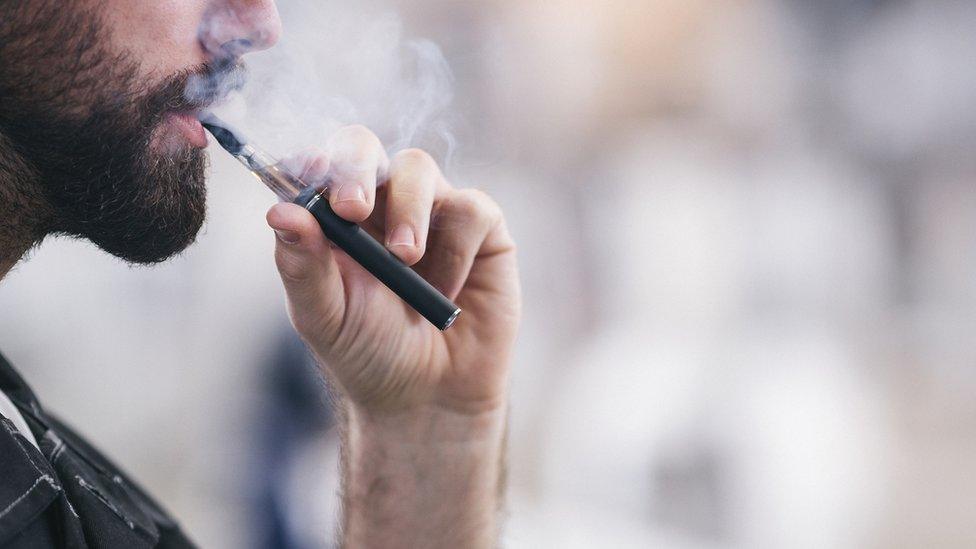Michigan becomes first state to ban flavoured e-cigarettes
- Published
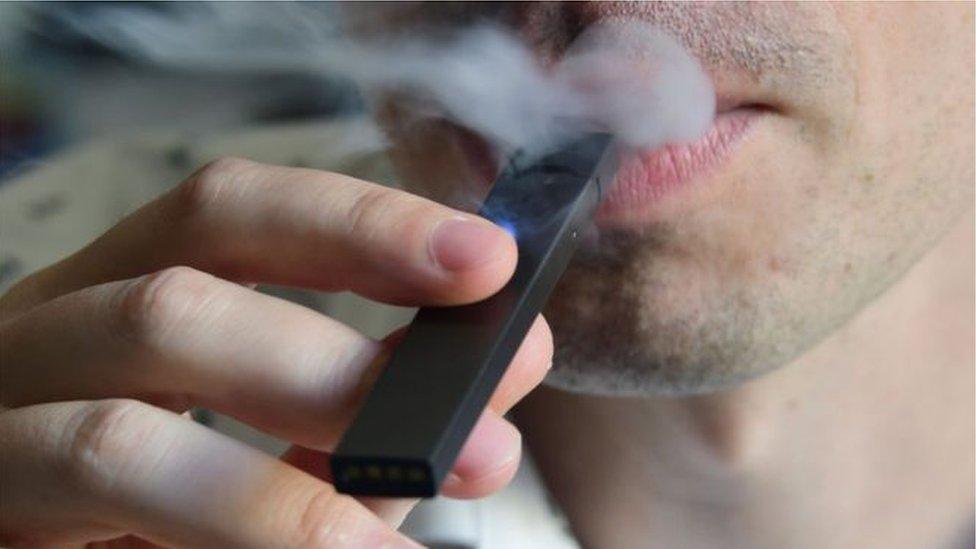
Michigan has become the first US state to ban flavoured e-cigarettes as part of efforts to curb youth vaping.
The measure goes into effect in the next 30 days and bars the sale of any flavoured vaping products in retail stores and online.
"My number one priority is keeping our kids safe," said Michigan Governor Gretchen Whitmer in a statement.
The measure will last six months, with the possibility of an extension and comes amid other action against vaping.
Ms Whitmer, a Democrat, also banned what she described as misleading marketing of such products, prohibiting adverts that describe vaping products as "clean", "safe" or "healthy".
"We've seen an explosive increase in the number of Michigan kids exposed to vaping products," said Joneigh Khaldun, chief medical executive for Michigan. "This is a public health crisis."
What's behind the ban?
E-cigarettes have experienced huge growth in recent years, especially among young people.
In just one year - from 2017-18 - the US Food and Drug Administration (FDA) reported a 78% jump in school students vaping.
Last year, more than 3.6 million children were using e-cigarettes, a "sharp and startling reversal of overall declines" in tobacco use among young people, according to the FDA.
"Youth use of electronic cigarettes has reached an epidemic proportion," said FDA commissioner Scott Gottlieb.
But the rise of e-cigarettes has provoked mounting opposition from lawmakers.
Ms Whitmer said: "Right now, companies selling vaping products are using candy flavours to hook children on nicotine and misleading claims to promote the belief that these products are safe. That ends today."
Michigan has joined a number of US states and cities taking steps to block the sale of e-cigarettes. In June, San Francisco became the first US city to ban sales of e-cigarettes and lawmakers in Boulder, Colorado, passed a similar ban last week.
What's the reaction?
Nancy Brown, chief executive of the American Heart Association, called the measure a "bold and appropriate" response "to the epidemic of youth e-cigarette use", noting the recent outbreak in illnesses associated with e-cigarettes.
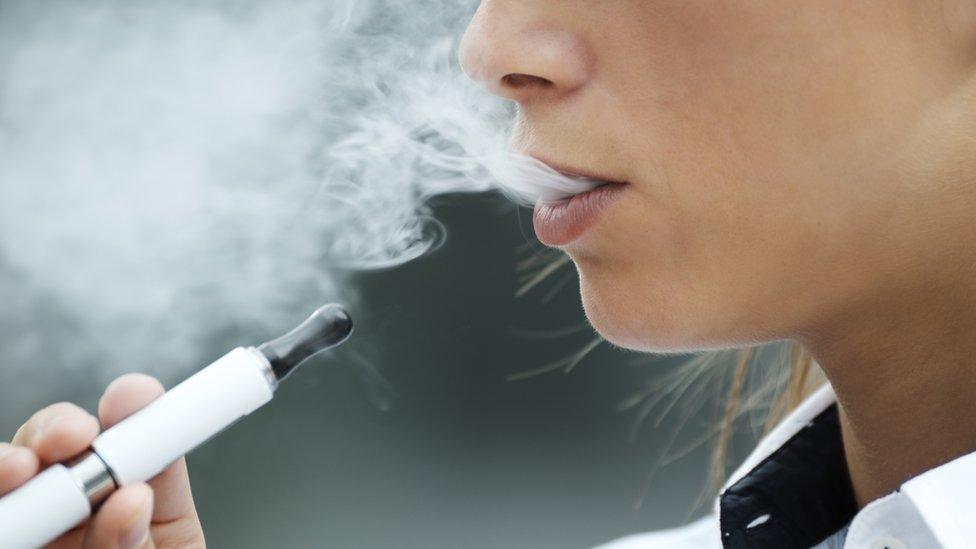
Last week, Juul - the market leader in e-cigarettes - said in a statement that it recognised youth vaping in the US was a "serious and urgent problem". The e-cigarette giant ended sales of most flavoured products in 2018 in an effort to deter teenage use of the product, and stopped sales to anyone under 21 years of age.
"We want to be the off-ramp for adult smokers to switch from cigarettes, not an on-ramp for America's youth to initiate on nicotine," the company said in a statement announcing the changes.
Defenders of e-cigarettes called the Michigan ban misguided, arguing that e-cigarettes are much less unhealthy than cigarettes.
"This shameless attempt at backdoor prohibition will close down several hundred Michigan small businesses and could send tens of thousands of ex-smokers back to deadly combustible cigarettes," Greg Conley, president of the American Vaping Association, said in a statement.
What's the bigger picture?
According to the FDA, 34.3 million US adults and nearly 1.4 million young people in the US, ages 12-17, currently smoke cigarettes. Despite declines in cigarette smoking, tobacco use is still the leading cause of preventable disease and death in the US, killing about 480,000 Americans every year.
The battle surrounding e-cigarettes has been heightened by a recent spike in respiratory illnesses linked to e-cigarettes. The US Centers for Disease Control and Prevention (CDC) said last month there were 193 "potential cases" of a mystery lung disease related to vaping across 22 US states. The possible cases include one death in Illinois, the first death linked to vaping.
Last year, the FDA announced a series of enforcement actions against more than 1,300 retailers and five major manufacturers for catering vaping products to children.
According to the American Lung Association, 97% of current youth e-cigarette users used a flavoured product in the last month, and 70% list flavours as a key reason for their use.
It says there are 15,000 flavours on the market, from mango and mint to cotton candy and gummy bear.
Smoking v vaping: Watch lab test results
- Published16 August 2019
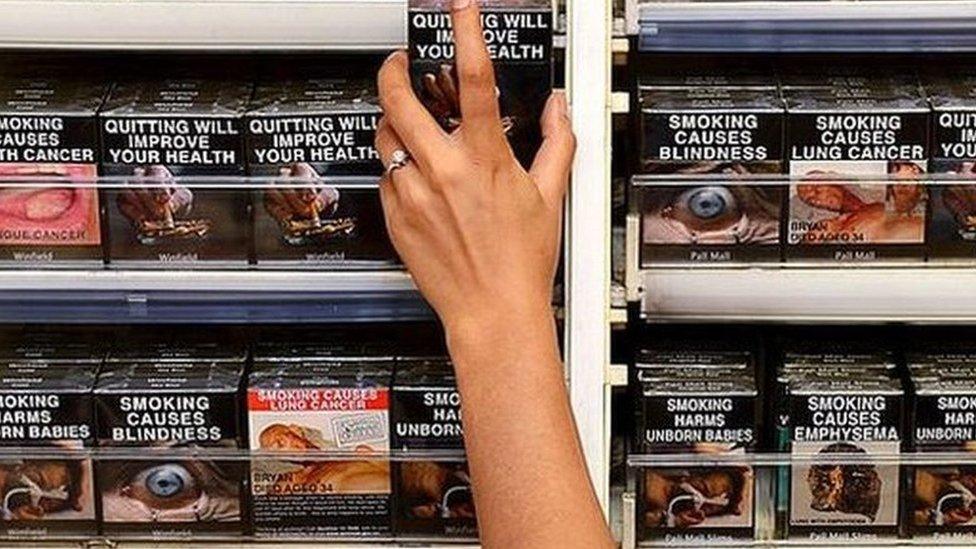
- Published15 September 2019
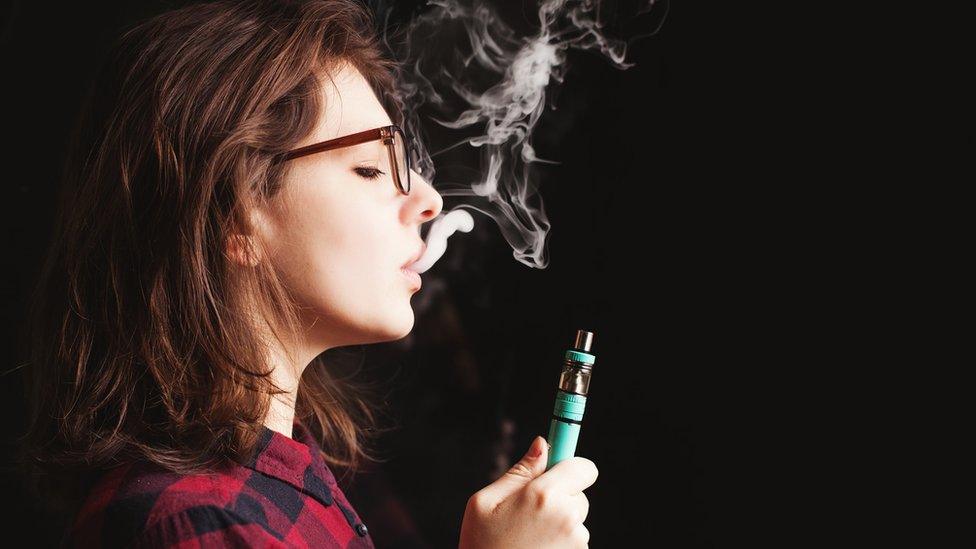
- Published26 June 2019
